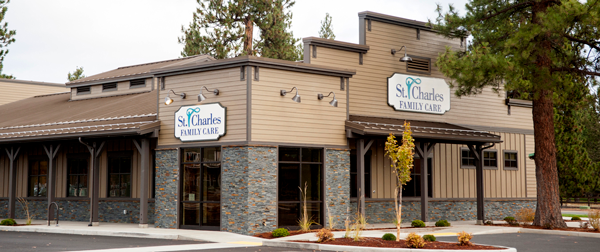Perimenopause, Menopause and Postmenopause
Health needs change as we age. For women, hormonal shifts throughout life cause changes in our bodies — first at menstruation, again in pregnancy and finally, at menopause — all with different outcomes and medical needs. The women’s health specialists at the St. Charles Center for Women’s Health can help manage each stage of your life, guiding you through these changes and keeping you as comfortable as possible during it all.
Menopause is often the most confusing stage of life for women. As we approach our 30s and 40s, reproductive hormone levels begin to decrease, triggering the onset of menopause (perimenopause) and the end of menstruation. But this shift in hormonal levels can also bring new health risks and, for some, uncomfortable symptoms. Many women feel lost during this time, not necessarily connecting bothersome symptoms with menopause, or realizing that those symptoms can be treated. That’s where we come in. Our experts (including Dr. Doyon - a Menopause Society Certified Practitioner) are here to help you understand what this change in life can bring and what treatments are available to reduce symptoms.

Perimenopause
Perimenopause is the transitional phase leading up to menopause. It can start in your 30s and 40s and last several years. Estrogen and progesterone levels start to fluctuate and gradually decline, which could cause you to experience irregular periods, hot flashes, night sweats, mood swings, weight gain, sleep disturbances and more. Perimenopause ends when you haven’t had a period for 12 consecutive months.
Menopause
Menopause is a point in time, not a phase. It is officially diagnosed when you haven’t had a period for 12 straight months. In the U.S., this happens around age 51, but can vary. Your ovaries stop releasing eggs and estrogen levels are much lower. Women who reach menopause can experience many of the same symptoms as perimenopause, but for some women, symptoms lessen.
Postmenopause
Postmenopause is the phase after menopause, lasting the rest of your life. Hormone levels remain low and you're no longer fertile.
Menopause treatments
Though menopause is a natural phase of life, it can be very disruptive to some women. For many, learning how to manage symptoms at home can be effective, but some women need additional help. It’s important to bring any concerns you may have about your experience to your doctor to discuss treatment options. At the St. Charles Center for Women’s Health, our specialists will help find the best solution to make you more comfortable during this time of life. Some of our treatment options include:
- Hormone replacement therapy
- Guidance on lifestyle changes that can help reduce symptoms
- Menopausal weight gain support
- Calcium supplements and other medications
- Alternative therapies
Behavioral health during perimenopause
If you feel like you're riding an emotional roller coaster during perimenopause and menopause, you're not alone.
It's common for women to experience anxiety, depression, sexual dysfunction, and/or irritability during this transition. You may also have hot flashes, which can lead to insomnia — and constant fatigue.
It is important to remember that your shifting moods are real effects of fluctuating hormones and decreasing estrogen levels in your body. The good news is, these symptoms can be successfully managed through healthy habits, behavioral skills and medications, if necessary. Your providers at St. Charles Center for Women’s Health partner with integrated behavioral health consultants and together they can help guide and support you to find ways to manage your physical and emotional symptoms, and navigate these transitional years with more ease.
For more information about our services or to schedule an appointment, call 541-526-6635.
The St. Charles Center for Women’s Health offers comprehensive health services, including perimenopause and menopause management.





